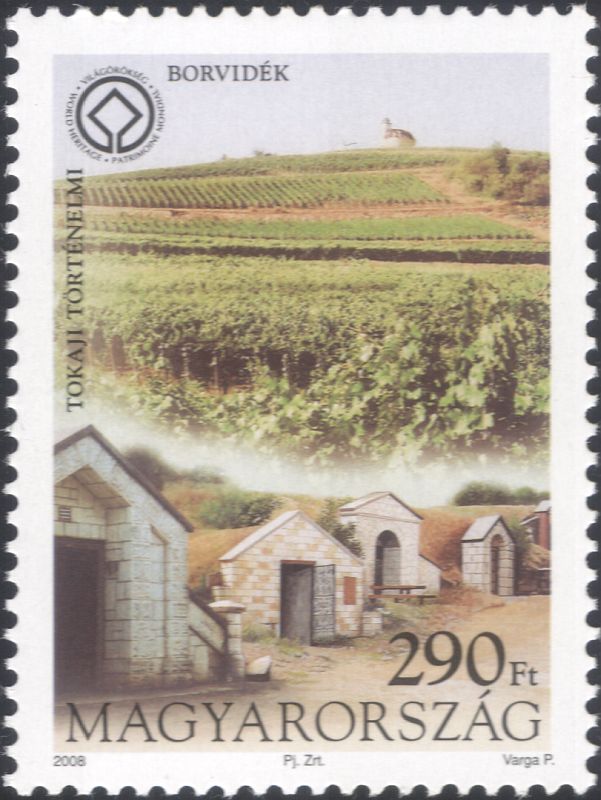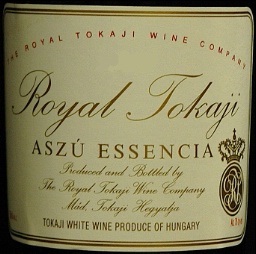In praise of Tokay wine
(Poet's title: Lob des Tokayers)
Set by Schubert:
D 248
[August 1815]
O köstlicher Tokayer,
O königlicher Wein,
Du stimmest meine Leier
Zu seltnen Reimerei’n.
Mit lang entbehrter Wonne
Und neuerwachtem Scherz
Erwärmst du gleich der Sonne
Mein halb erstorbnes Herz:
Du stimmest meine Leier
Zu seltnen Reimerei’n,
O köstlicher Tokayer,
O königlicher Wein.
O köstlicher Tokayer,
O königlicher Wein,
Du gießest Kraft und Feuer
Durch Mark und durch Gebein.
Ich fühle neues Leben
Durch meine Adern sprühn,
Und deine Nektarreben
In meinem Busen glühn.
Du gießest Kraft und Feuer
Durch Mark und durch Gebein,
O köstlicher Tokayer,
O königlicher Wein.
O köstlicher Tokayer,
O königlicher Wein,
Dir soll, als Gramzerstreuer,
Dies Lied geweihet sein!
In Schwermutsvollen Launen
Beflügelst du das Blut;
Bei Blonden und bei Braunen
Gibst du dem Blödsinn Mut.
Dir soll, als Gramzerstreuer,
Dies Lied geweihet sein,
O köstlicher Tokayer,
O königlicher Wein.
Oh valuable Tokay,
Oh royal wine,
You give voice to my lyre,
Causing rare versifying.
With a delight missing for so long
And a newly awakened sense of fun,
Like the sun, you warm up
My half-frozen heart.
You give voice to my lyre,
Causing rare versifying,
Oh valuable Tokay,
Oh royal wine!
Oh valuable Tokay,
Oh royal wine,
You pour power and fire
Through my marrow and limbs.
I feel a new life
Sparkling through my veins
And your nectar grapes
Glow in my breast.
You pour power and fire
Through my marrow and limbs.
Oh valuable Tokay,
Oh royal wine!
Oh valuable Tokay,
Oh royal wine,
As destroyer of sorrow, we should
Dedicate this song to you!
In grief-laden moods
You give our blood wings,
To blondes and brunettes
You give the courage to mess about.
As destroyer of sorrow, we should
Dedicate this song to you,
Oh valuable Tokay,
Oh royal wine!
All translations into English that appear on this website, unless otherwise stated, are by Malcolm Wren. You are free to use them on condition that you acknowledge Malcolm Wren as the translator and schubertsong.uk as the source. Unless otherwise stated, the comments and essays that appear after the texts and translations are by Malcolm Wren and are © Copyright.
☙
Themes and images in this text:
Blood Bones and skeletons Chest / breast Drinking songs Fire Frost and ice Hearts Heat Lyres Nectar Poetry Pouring, scattering and strewing The sun Wine and vines Wings

Tokay was the first wine to be subject to a form of ‘appellation d’origine contrôlée’. Three classifications (according to the soil, grape etc) were established and a decree of 1737 restricted production to a specific strip of northern Hungary (which, since the Treaty of Versailles, has also included a part of Slovakia). It travelled well and was called a royal wine after Louis XIV of France noted on his menu card after drinking it in 1713, ‘C’est le roi des vins et le vin des rois’ (This is the king of wines and the wine of kings). Gabriele von Baumberg, the author of this drinking song, mixed in high society in Vienna, but Schubert in his more humble social situation was also clearly very familiar with the drink.
It may be that this text extols a particularly rare and expensive type of Tokay, though. If the grapes are harvested after a frost, a sort of Eiswein (ice-wine) can be made, and there may be a reference to this in the first strophe (the sun warms my half-frozen heart, just as it forms a noble wine from half-frozen grapes). The way that the wine is said to destroy sorrow and produce warmth and sparkle might also refer to the production process of the most common Tokay wines (aszú): the controlled use of ‘noble rot’ (Botrytis cinerea, a type of fungus). The wine itself becomes a symbol of how our own suffering can be transformed and our mood lightened. When we are weighed down by sorrow, a glass of Tokay can ‘give wings’ to our blood.

Susan Youens[1] has pointed out how Gabriele von Baumberg used an unusual poetic metre to evoke the swaying or eliptical effect of alcohol (the repeated lines at the beginning and end of each strophe have twice the number of stressed syllables as the central lines). It is hard to imagine this poet as the sort of woman who was happy to leave the room before the men settled down to pass the bottle and sing their drinking songs, particularly given her references to the way that Tokay can awaken a sort of playfulness and give us the courage to be daft. Although on the surface the song appears to be written in the grand Anacreontic manner, with its reference to the lyre and the presumption that Vienna’s Sappho is offering some sort of libation, the repeated celebration of silliness changes the tone. As she says, this wine brings about some rare (odd?) versifying.
[1] Susan Youens, Schubert’s poets and the making of lieder CUP 1996 pp. 45 – 47
☙
Original Spelling Lob des Tokayers O köstlicher Tokayer! O königlicher Wein! Du stimmest meine Leyer Zu seltnen Reimerey'n. Mit lang' entbehrter Wonne Und neuerwachtem Scherz Erwärmst du, gleich der Sonne, Mein halb erstorbnes Herz: Du stimmest meine Leyer Zu seltnen Reimerey'n, O köstlicher Tokayer! O königlicher Wein! O köstlicher Tokayer! O königlicher Wein! Du gießest Kraft und Feuer Durch Mark und durch Gebein. Ich fühle neues Leben Durch meine Adern sprühn, Und deine Nektarreben In meinem Busen glühn. Du gießest Kraft und Feuer Durch Mark und durch Gebein, O köstlicher Tokayer! O königlicher Wein! O köstlicher Tokayer! O königlicher Wein! Dir soll, als Gramzerstreuer, Dies Lied geweihet seyn! In Schwermuthsvollen Launen Beflügelst du das Blut; Bei Blonden und bey Braunen Giebst du dem Blödsinn Muth. Dir soll, als Gramzerstreuer, Dies Lied geweihet seyn, O köstlicher Tokayer! O königlicher Wein!
Confirmed by Peter Rastl with Schubert’s source Sämmtliche Gedichte Gabrielens von Baumberg. Wien, gedruckt bey Joh. Thom. Edl. v. Trattnern, k.k. Hofbuchdrucker und Buchhändler, 1800, pages 245-246; and with Wiener Musenalmanach für das Jahr 1796. Herausgegeben von Gottfried Leon. Wien, bey Jos. Camesina & Comp., pages 109-110.
Note: First published in the Wiener Musenalmanach under the pseudonym v. Traubenberg; Schubert used the 1800 edition of Baumberg’s collected poems.
To see the 1800 edition of the text, go to page 245 (277 von 350) here: http://digital.onb.ac.at/OnbViewer/viewer.faces?doc=ABO_%2BZ103534702


